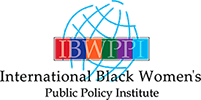Policy
Health & Wellness
According to the Center for Human Rights and Global Justice on Haïti, “only 55.2 percent of the population has access to an improved water source, while close to 70 percent does not have direct access to potable water” (15, CHRGJ, et al). This is a global health challenge and one that the International Black Women’s Public Policy Institute has embraced as one of its international health policy issues.
In our effort to make a significant difference and to provide as much substantive help to the people of Haïti as possible, IBWPPI has also partnered with Community2Community, (C2C), a 501c3 non-profit, service organization dedicated to “creating self-sufficient communities by working with the community”.
In our effort to make a significant difference and to provide as much substantive help to the people of Haïti as possible, IBWPPI has also partnered with Community2Community, (C2C), a 501c3 non-profit, service organization dedicated to “creating self-sufficient communities by working with the community”.

Community2Community (C2C) was created post the 2010 Earthquake that produced extensive damage in Haïti. Post Earthquake, 1.5million people were left homeless and without access to basic human necessities such as, clean water, food, proper health care, sanitation and education. To date, it is estimated that 850,000 people still remain without those basic necessities. Having access to adequate health care and clean potable water is a major problem in many parts of Haïti, including the mountainside communities of Petit Goȃve, a coastal commune in the south of Haïti. Prior to the earthquake, rural communities were in dire need of health, education and welfare infrastructure. Post earthquake, it became an emergency.
The local voice and local leadership is a key part of this participatory pilot project. Following 10 years of collaboration with their Partner Communities on the water and health initiatives, they focused on two priorities:
- the construction of a multiroom/purpose Health & Wellness Center
- the completion of Phase 3 and 4 of the Water Distribution System
The Health and Wellness Center of the Continuous Care Initiative (CCI) and Kiosks of the Water Distribution System will provide low cost, comprehensive access to health care and clean water on the mountain via an onsite center operated by the community Peasant Association in partnership with C2C.
The Water Distribution System currently:
- Provides access to clean potable water reducing the incidences of digestive borne diseases for children and most vulnerable adults, pregnant women and elderly
- Enables the community to improve agricultural production to reduce the source of food insecurity in the community. This can only be accomplished with access to clean water.
C2C committed to assisting as co-laborers, walking along-side to support their Partner Communities to self-sufficiency.
The estimated completion time for the project in the Mountainside Partner Community, fully funded, is approximately four years. The community had already begun these initiatives prior to the earthquake with very limited resources and very little support.
IBWPPI’s goal is to mobilize intellectual, financial, and material resources to the point of need to implement initiatives that will result in restoring, rebuilding, revitalizing and re-investing in communities to help them obtain and maintain self-sufficiency.
